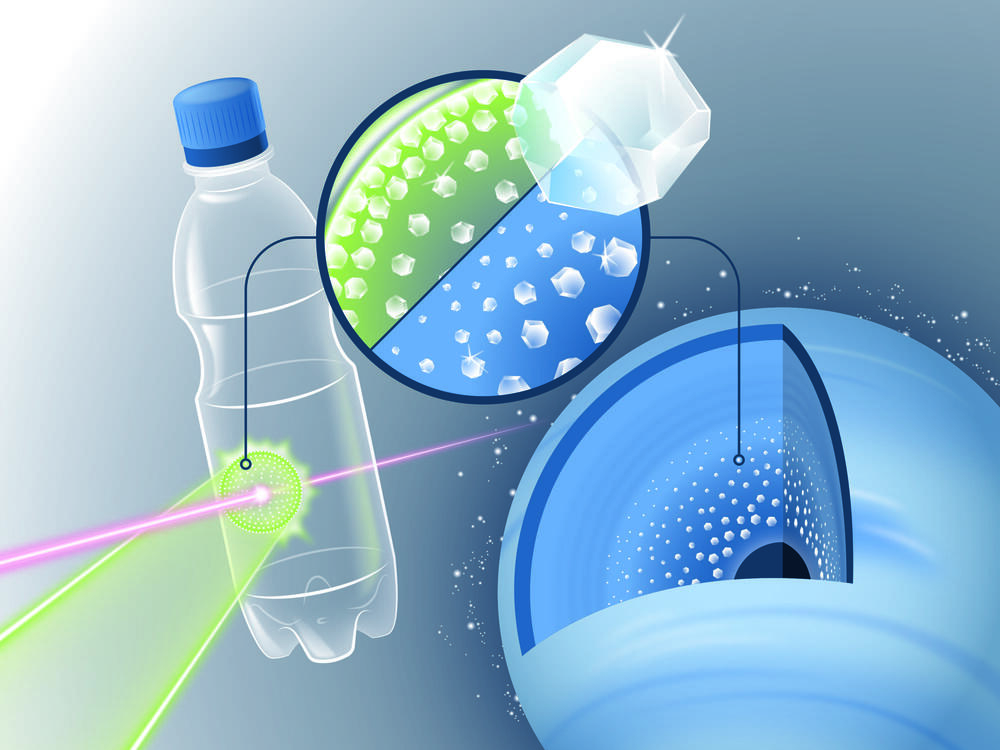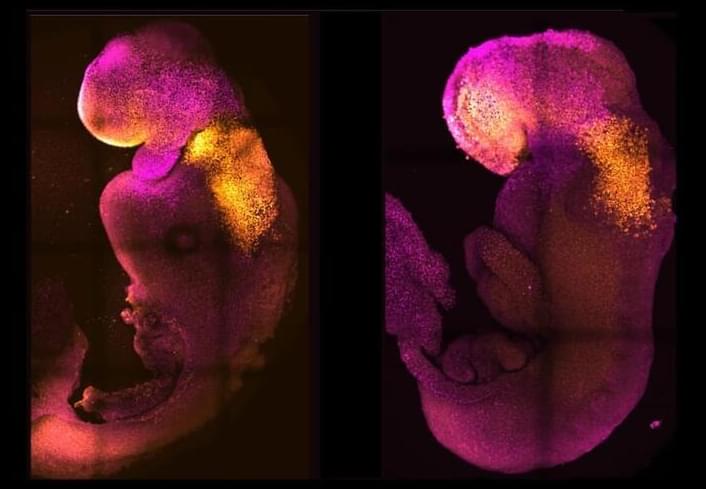The promise and perils of a breakthrough in machine intelligence.


Astronomers may soon have the answer to what is perhaps the greatest mystery of modern science –is dark energy a uniform force across space and time, or has its strength evolved over eons?
The universe is not only expanding – it is accelerating outward, driven by what is commonly referred to as “dark energy.” The term is a poetic analogy to the label for dark matter, the mysterious material that dominates the matter in the Universe and that really is dark because it does not radiate light (it reveals itself via its gravitational influence on galaxies).

What goes on inside planets like Neptune and Uranus? To find out, an international team headed by the Helmholtz-Zentrum Dresden-Rossendorf (HZDR), the University of Rostock and France’s École Polytechnique conducted a novel experiment. They fired a laser at a thin film of simple PET plastic and investigated what happened using intensive laser flashes. One result was that the researchers were able to confirm their earlier thesis that it really does rain diamonds inside the ice giants at the periphery of our solar system. And another was that this method could establish a new way of producing nanodiamonds, which are needed, for example, for highly-sensitive quantum sensors. The group has presented its findings in the journal Science Advances.
The conditions in the interior of icy giant planets like Neptune and Uranus are extreme: temperatures reach several thousand degrees Celsius, and the pressure is millions of times greater than in the Earth’s atmosphere. Nonetheless, states like this can be simulated briefly in the lab: powerful laser flashes hit a film-like material sample, heat it up to 6,000 degrees Celsius for the blink of an eye and generate a shock wave that compresses the material for a few nanoseconds to a million times the atmospheric pressure.
“Up to now, we used hydrocarbon films for these kinds of experiment,” explains Dominik Kraus, physicist at HZDR and professor at the University of Rostock. “And we discovered that this extreme pressure produced tiny diamonds, known as nanodiamonds.”

DENVER — During the dog days of summer, it’s important to keep your home cool. But when thousands of Xcel customers in Colorado tried adjusting their thermostats Tuesday, they learned they had no control over the temperatures in their own homes.
Temperatures climbed into the 90s Tuesday, which is why Tony Talarico tried to crank up the air conditioning in his partner’s Arvada home.
“I mean, it was 90 out, and it was right during the peak period,” Talarico said. “It was hot.”
That drought is set to worsen with a fifth consecutive failed rainy season, the WMO projected on Friday, fearing an unprecedented humanitarian catastrophe.
Ethiopia, Kenya and Somalia are already going through their worst drought for 40 years.
La Nina’s cooling effect also did not stop 2021 from being one of the seven hottest years on record.
Join us on Patreon!
https://www.patreon.com/MichaelLustgartenPhD
TruDiagnostic Discount Link (Epigenetic Testing)
CONQUERAGING!
https://bit.ly/3Rken0n.
Bristle Discount Link (Oral microbiome quantification):
ConquerAging15
https://www.bmq30trk.com/4FL3LK/GTSC3/
Cronometer Discount Link (Daily diet tracking):
https://shareasale.com/r.cfm?b=1390137&u=3266601&m=61121&urllink=&afftrack=
Support the channel with Buy Me A Coffee!
https://www.buymeacoffee.com/mlhnrca.
Papers referenced in the video:

When our eyes move during REM sleep, we’re looking at things in the dream world our brains have created, according to a new study by researchers at the University of California, San Francisco (UCSF). The findings shed light not only on how we dream, but also on how our imaginations work.
REM sleep, which is named for the rapid eye movements associated with it, has been known since the 1950s to be the phase of sleep when dreams occur. But the purpose of the eye movements has remained a matter of much mystery and debate.
REM sleep first occurs about 90 minutes after falling asleep. Your eyes rapidly move from side to side behind closed eyelids. Mixed frequency brain wave activity becomes closer to that seen in wakefulness. Your breathing becomes faster and irregular, and your heart rate and blood pressure increase to near waking levels. Although some can also occur in non-REM sleep, most of your dreaming occurs during REM sleep. Your arm and leg muscles become temporarily paralyzed, which prevents you from acting out your dreams. You sleep less of your time in REM sleep as you age.


“This makes agri-PV systems increasingly attractive for agriculture, because it provides a way to keep domestic agriculture competitive with the international market and to enable farmers to earn additional income,” explains Max Trommsdorff, project manager at Fraunhofer ISE. “At the same time, we can drive the expansion of renewable energies, reduce pressure on scarce land and increase resilience to weather extremes and climate change in different farming systems.”
Nevertheless, only a few projects have been realised so far. Those involved in the project see one of the crucial hurdles in the existing legal framework. These include inadequate incentive systems and comparatively complex approval processes. In addition, there are growing concerns about the acceptance of the local population and the attractiveness of the landscape.
Such economic, legal and social hurdles are to be compiled within the framework of the project. Subsequently, the participants want to work out proposals for solutions on how to reduce and overcome these hurdles. The focus should be on the optimal use of the potentials and the avoidance of wrong decisions in the application of agriphotovoltaics.
